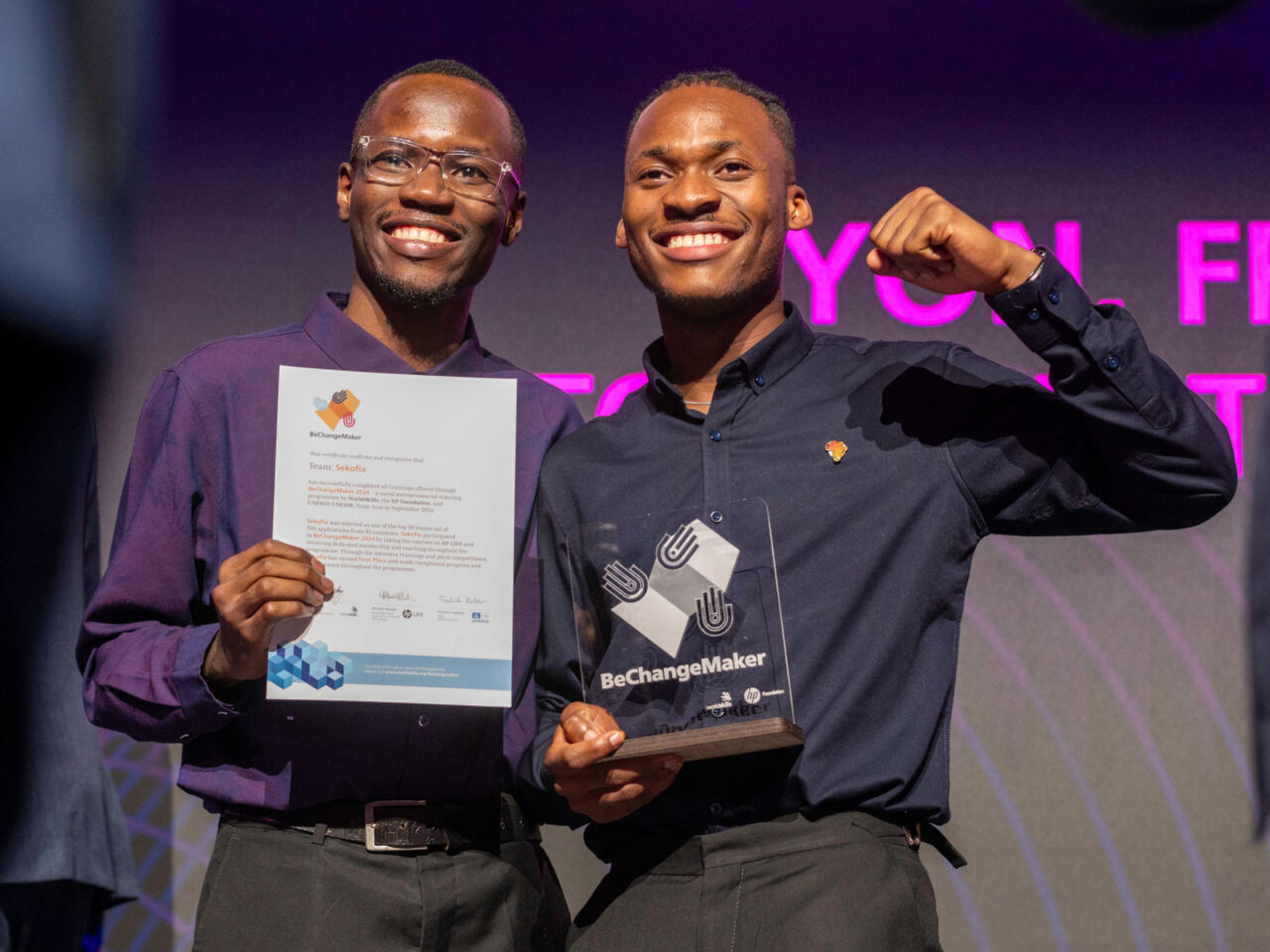Sessions
-

Relive the most significant moments from WorldSkills Conference 2024
Experience the energy and the insights of WorldSkills Conference 2024, as global leaders, educators, and young people united to elevate Technical and Vocational Education and Training (TVET) to the top of the global agenda.
-

Sekofia from Nigeria wins BeChangeMaker 2024
After an electrifying finale on day two of WorldSkills Conference 2024, Sekofia was crowned winner of the annual young entrepreneur programme with an ingenious solution that promises to revolutionize healthcare access in Africa.
-

AI, data, and foundational skills: Day two of WorldSkills Conference 2024
Innovative ideas and global collaboration take centre stage as international experts, educators, and young people discuss what is needed for a skills transformation. We share a summary of day two and the recommendations being taken forward.
-

Excellence, equity, and sustainable practices: Day one of WorldSkills Conference 2024 wraps up
As the first day draws to a close, WorldSkills Conference 2024 has already sparked ideas and stimulated discussions. Here is a summary of the key talking points from day one and how delegates are “Moving TVET to the top of the global agenda.”
-

Connecting WorldSkills Conference 2024 and WorldSkills Competition 2024 to elevate skills, globally
Running side by side, WorldSkills Lyon 2024 and WorldSkills Conference 2024 work in harmony to shine a spotlight skills excellence and move skills to the top of the global agenda.
-

Session Spotlight: Moving TVET to the top of the global agenda
Global leaders from UNESCO, the ILO, the African Union Development Agency, and industry giants Autodesk and Stanley Black & Decker will join youth representatives to craft a powerful message that puts Technical and Vocational Education and Training (TVET) at the heart of sustainable development strategies.
-

Session spotlight: Can education catch up? AI and the future of work
Artificial Intelligence is potentially reshaping industries faster than education can adapt. In a thought-provoking session at WorldSkills Conference 2024, experts will explore the opportunities and challenges new technology presents in skills development.
-

Session Spotlight: Building a global TVET agenda
The Opening Plenary at WorldSkills Conference 2024 sets the stage for two days of intensive discussion on how to elevate Technical and Vocational Education and Training (TVET) to the top of the global agenda.
-

Meet the BeChangeMaker 2024 finalists preparing to travel to Lyon to make their live pitch
The stage is set for the grand finale. Five exceptional teams will showcase their social enterprises to a global audience at WorldSkills Conference 2024. We asked them to take a moment out of their intensive schedule to tell us more about their innovations.

